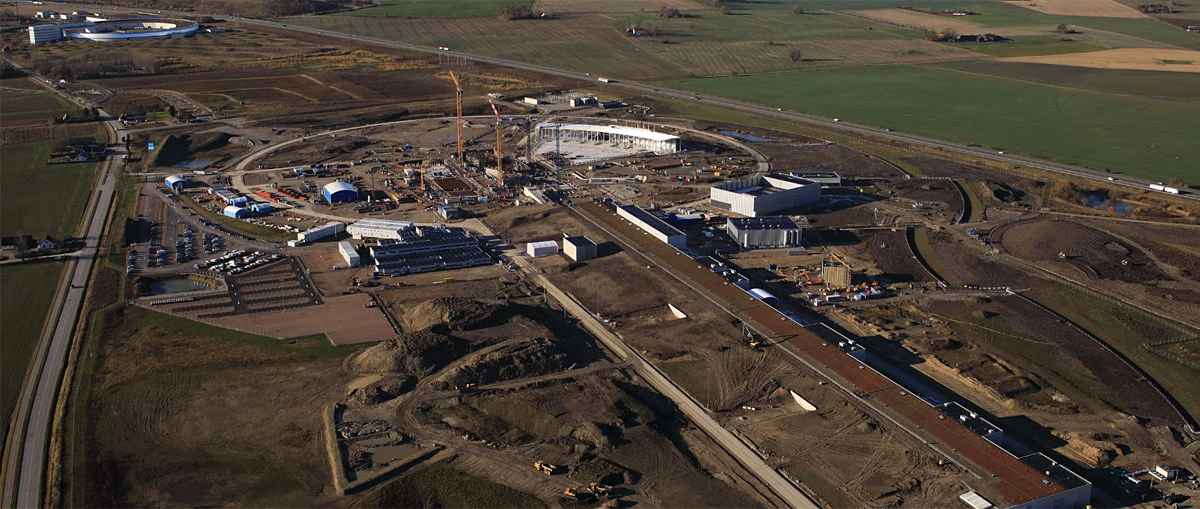
University of Huddersfield wins contract on €1.8bn European Spallation Source project in Sweden
Scientists at the University of Huddersfield have been contracted to help deliver one of the world’s largest technology projects, which is currently under construction in Sweden.
The University of Huddersfield’s International Institute of Accelerator Applications (IIAA), in tandem with the Science and Technology Facilities Council’s Daresbury Laboratory, will work on the £20m Radio Frequency distribution system project that will power the particle accelerator known as the European Spallation Source (ESS).
Fifteen European nations are collaborating on the ESS, which is located at Lund in Sweden.
Building work began in 2014, after a near 20-year campaign to make the case for a new and ultra-powerful neutron source that would enable thousands of scientists to carry out atomic-level investigations of materials.
The ESS is expected to be in full use by 2023 and findings by researchers could lead to breakthroughs in fields such as drug development, plastics, batteries, engines, proteins and nanotechnology.
The UK has signed up to provide 10% of the €1.8bn cost of developing the ESS.
The University of Huddersfield’s IIAA is to partner with Science and Technology Facilities Council’s Daresbury Laboratory to provide the ESS with its Radio Frequency (RF) distribution system, which delivers power to the particle accelerator.
This will require the construction and installation of almost four kilometres of waveguides, in the form of aluminium tubes, and a large number of other devices. The mechanical engineering will be handled by Daresbury, while Professor Rob Edgecock of the University of Huddersfield’s IIAA heads the other aspect of the work package.
Commenting on the complex project, Professor Edgecock said: “If you design the system incorrectly it is possible that you will get big reflections of RF power back to the power source, which will damage it, alongside other expensive equipment that is part of this system.”
Although Professor Edgecock and his colleagues will not be carrying out the actual installation of the RF system, they will pay frequent visits to Lund in order to ensure that it is correctly installed and test the equipment.
The work, valued at £20m, is scheduled to last until 2020 and a research fellow is shortly to be appointed, joining PhD student Norman Turner on the RF project.
Looking to promote your product/service to SME businesses in your region? Find out how Bdaily can help →
Enjoy the read? Get Bdaily delivered.
Sign up to receive our popular Yorkshire & The Humber morning email for free.




 test article 123456789
test article 123456789
 hmcmh89cg45mh98-cg45hm89-
hmcmh89cg45mh98-cg45hm89-
 test456456456456456456
test456456456456456456
 test123123123123123123
test123123123123123123
 test xxxdiosphfjpodskhfiuodsh
test xxxdiosphfjpodskhfiuodsh
 Savour the flavour: North Tyneside Restaurant Week returns for 2024
Savour the flavour: North Tyneside Restaurant Week returns for 2024
 Six steps to finding the right buyer for your business
Six steps to finding the right buyer for your business
 Stephen signs off on a special night
Stephen signs off on a special night
 Life’s a Peachaus: Gillian Ridley Whittle
Life’s a Peachaus: Gillian Ridley Whittle
 Making a splash: Phil Groom
Making a splash: Phil Groom
 Making workplace wellbeing a priority
Making workplace wellbeing a priority
 A record of delivery, a promise of more: Ben Houchen
A record of delivery, a promise of more: Ben Houchen